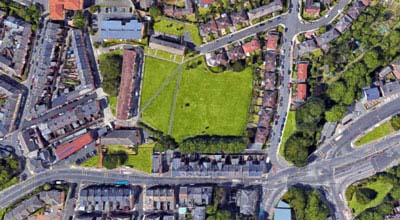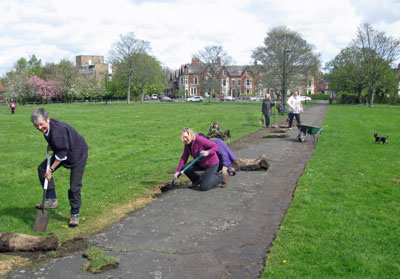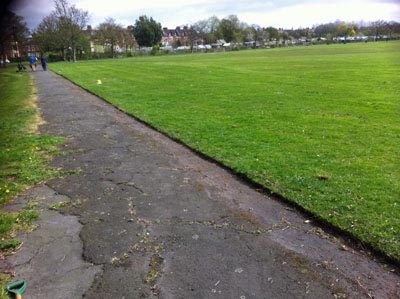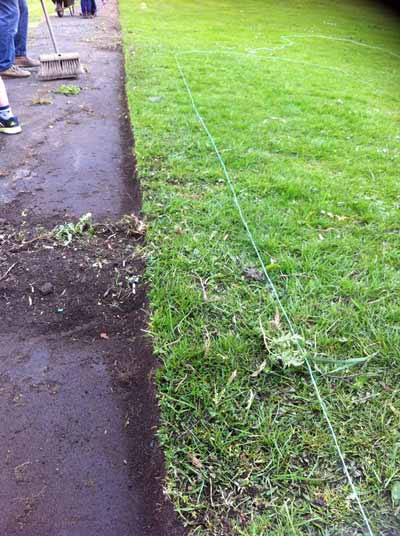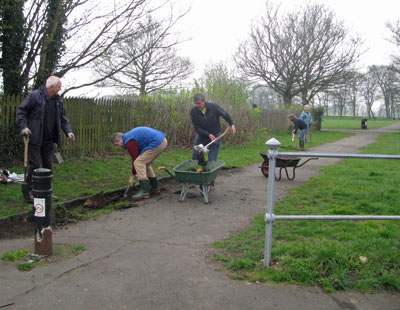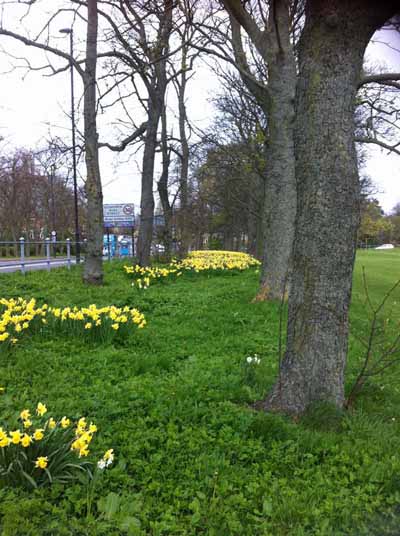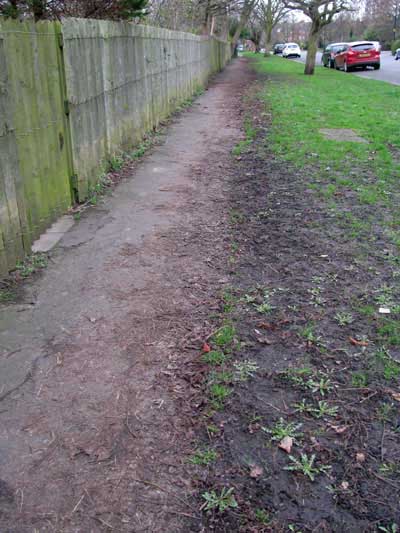Reduced recycling means increased rubbish costs
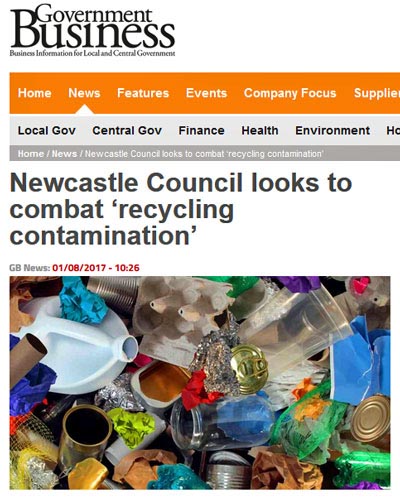
This is a worrying development. The council has been imposing more communal bins on areas of the city.
The proposal for communal bins in High West Jesmond remains very unpopular with residents with a recent poll showing that 95% of High West Jesmond residents were AGAINST communal bins.
One of the problems with communal bins is that nobody “owns” the communal bins and this is likely to lead to a increased problems with contamination of recyclables.
In the article below you can read how Newcastle City Council plans to fit “restrictor plates” to communal bins in an attempt to prevent people placing bulky items in them. This will no doubt also make it more difficult for some people to use the communal bins which the council still plans to impose of other areas of the city.
Whilst we agree with the aims for a “greener and cleaner city” referred to in the article below, High West Jesmond Residents’ Association (HWJRA) supports the views of the majority of High West Jesmond residents and HWJRA opposes the introduction of communal bins – the risk of contamination of recyclables being just one of the reasons.
Marginal budgeted savings not realised?
If the recycling rate in Newcastle reduces and it costs the council more to dispose of refuse then it is likely that the marginal budgeted savings put forward in the council budget from the roll out of communal bins will not be realised.
The following news article was posted on the Newcastle City Council website on 1 August 2017. The views are those of Newcastle City Council and do not necessarily represent the views of High West Jesmond Residents’ Association.
Newcastle City Council news release
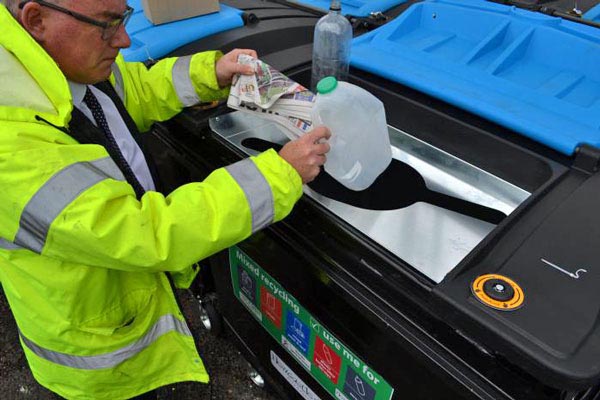
In recent months, this collection has seen a worrying development with increasing amounts of non-recyclable materials, such as food waste, nappies, textiles, and black bags of general waste.
Recyclables contaminated
They are being incorrectly added to recycling bins, and this is interfering with the recycling process. The City Council is working hard to remind everyone to put the right waste in the right bin – recyclable items only in blue and communal recycling bins and non-recyclable, general waste in the green bins refuse bins.
Council plans more communal bins
The need to recycle properly is being pushed in the build up to the next planned stage of communal bins being rolled out in the coming weeks to some properties in the West End of the city.
The presence of non-recyclable, black bag waste in recycling bins leads to two major difficulties further along in its journey, when it arrives at the O’Brien Waste Recycling Solutions depot in Wallsend.
Recycling waste being rejected for recycling leads to higher costs
It leads to a high percentage of the recycling materials being rejected for recycling. For example, if food waste leaks into newspapers, the paper can’t be recycled and must be disposed of as waste. It also slows down the recycling sorting process as black bags need to be opened and checked by hand, an unpleasant job, especially when nappies and food waste is present. The effect is to lower levels of recycling and increase waste treatment costs.
Recycling rates in England have risen steadily since the early 2000s, peaking at 44.8%. However, in 2015, the rate of recycling fell for the first time to 43.9%. Part of the reason for this fall, particularly in large cities like Newcastle, is the impact of increasing levels of non-recyclable, black bag waste in recycling collections. Another, and almost polar opposite reason, is the amount of good quality recyclable materials being placed in non-recycling refuse bins.
Hopefully the drop in recycling will be an eye opener and encourage more residents to stop and think about their household’s recycling routine.
To give you an idea, in 2016, 19,450 tonnes of mostly recyclable materials were collected in the City’s blue and communal recycling bins. The level of non-recyclable material content in this collection of 1% (just under 200 tonnes) in the previous year, 2015, had risen to nearly 10% (just under 2,000 tonnes) by 2016. At the same time, a worrying amount of good quality recyclable materials was placed in refuse bins. For example, 840 tonnes of metal cans were correctly placed in blue/communal recycling bins, while just a little less than this, 700 tonnes of cans, were incorrectly placed in non-recycling refuse bins.
Restrictor plates to be fitted
One way the City Council is trying to resolve the issue is by adding restrictor plates to new and existing communal bins. The idea behind the plate is to try and discourage people from putting bulky items and black bin bags into the communal recycling bins. The design of the plate – similar to the shape of the London Underground sign – means that residents have to put fewer items into the bin at one time. Trials of the new ‘bin blocker’ plate have proved successful in some parts of the city, where contamination was an issue, which lead to them being introduced on all new bins.
Aim for greener and cleaner city
Cllr Nick Kemp, Newcastle City Council cabinet member for neighbourhoods and regulatory services, said: “The collection and emptying of people’s bins is an important function that helps keep the city ticking over. We introduced communal bins to some back lanes of Newcastle as the Council recognised that something needed to be done to improve the service; and to tackle the issue of excess waste littering the streets.
“Waste contamination of recycling bins is an issue and it’s something that we’re trying to resolve. But instead of it being a short term resolution, we are introducing new methods to ensure the problem doesn’t continue. This includes newly designed bins, education programmes delivered by our enviro-schools and greater targeted enforcement that hits littering and fly-tipping perpetrators in their pockets.
“We will keep preserving with our awareness campaigns and delivering a service that will help Newcastle become a greener and cleaner city.”
Kevin Hawkes, senior operations manager of O’Brien Waste Recycling Solutions said: “O’Brien Waste Recycling Solutions process recyclable materials delivered by Newcastle City Council and North Tyneside Council at our Recycling Facility in Wallsend.
We are seeing high levels of contamination in the form of Domestic Black Bag Waste, Nappies, Textiles and Glass. These materials cause major issues with the recycling process and result in contamination of recyclate sent for further processing.
Quality of material is now more important than ever and we would stress the importance of putting the right material in the right bin.”
For further information about communal bins, please visit www.newcastle.gov.uk/communalbins


